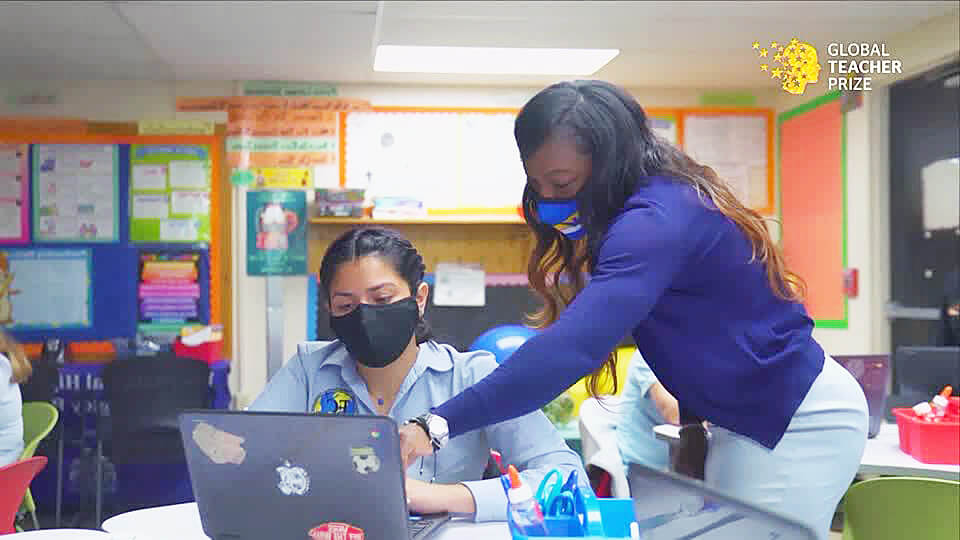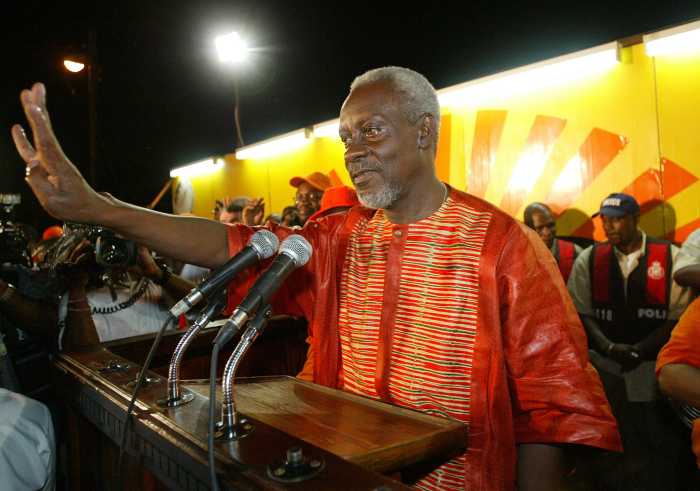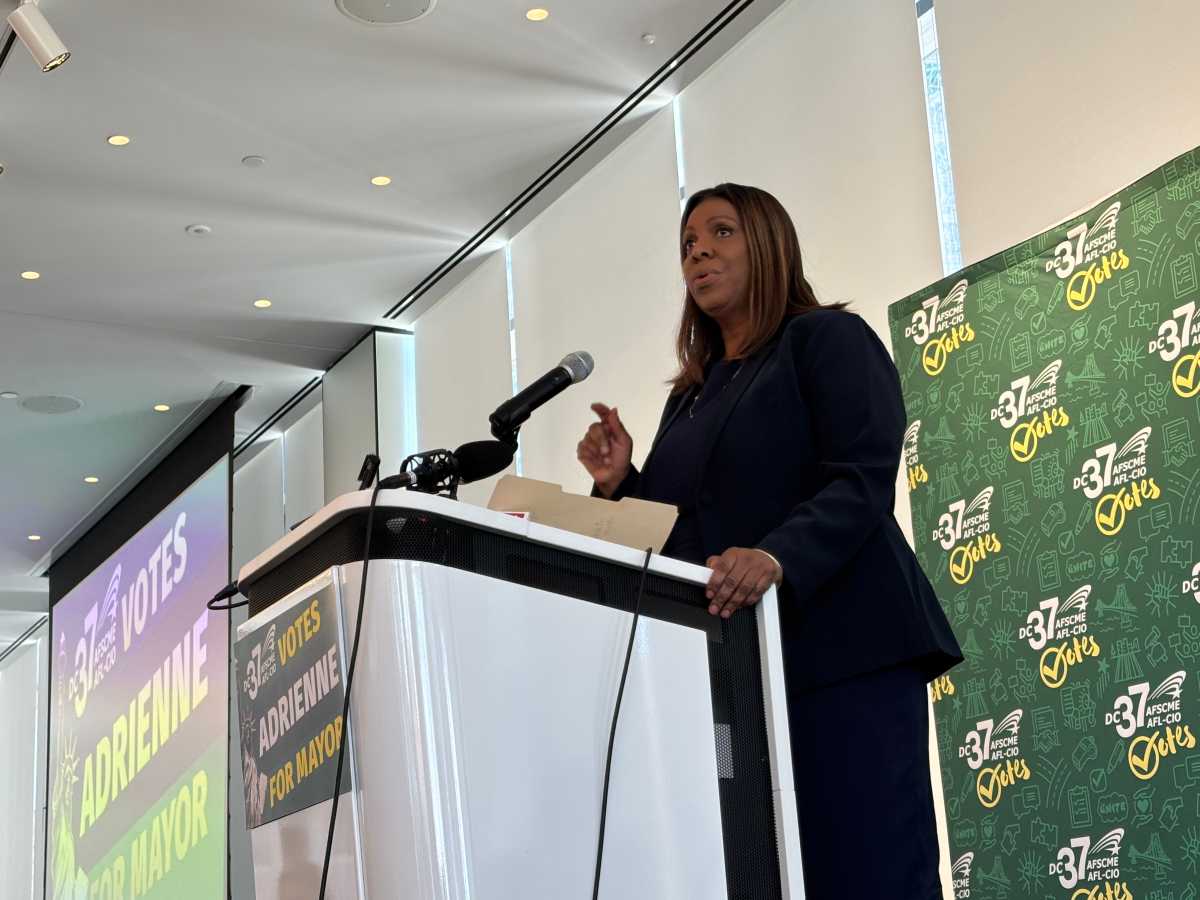PARIS (Reuters) – The Global Teacher Prize, an annual accolade worth $1 million (865,000 euros), was awarded on Wednesday to high school teacher, Keishia Thorpe, who has devoted her career to teaching immigrant children in the United States.
On hearing she had won, Thorpe, surrounded by members of her family and watching the prize ceremony in Paris via video link, first laughed and then sobbed, her head buried in her hands.
“I just thank God for this moment,” she said.
“This is to encourage every little black boy and girl that looks like me, and every child in the world that feels marginalized and has a story like mine, and felt they never mattered,” Thorpe told the ceremony host, French actress Isabelle Huppert.
“We must ensure all students have the opportunity to succeed and no laws or policies should strip them of that.”
Thorpe teaches English to 12th-grade students who are English language learners at the International High School Langley Park in Bladensburg, Maryland.
Over 85% of pupils at the school are Hispanic and 95% identify as low-income, according to the citation for the prize.
Thorpe grew up in poverty in Jamaica, before immigrating to the United States on a track and field scholarship. While studying, she volunteered as a tutor in an inner-city school, and was inspired to become a teacher when she saw the lack of opportunity facing students.
Outside the classroom, she has been an advocate for minority students and equal access to education. She also founded a non-profit offering support services to immigrant students and their families, according to the citation.
The Global Teacher Prize is sometimes described as the Nobel Prize for educators. It was founded by the Varkey Foundation, a philanthropic fund, and organized in partnership with the Paris-based United Nations cultural organisation UNESCO.
Last year the $1 million prize went to Ranjitsinh Disale for his work teaching girls, most of them from poor tribal communities, at a village school in western India.
(1 euro = $1.1564)
(Reporting by Christian Lowe; Editing by Mark Heinrich)



























